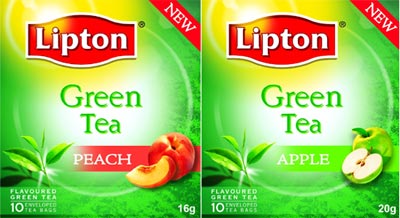Tea Myths Exposed

As I'm sure you'll agree, there's nothing quite like a good cup of tea. Tea has long been known for its rejuvenating effects - to revive, relax and refresh all at the same time. We now know that L-theanine, an amino acid and a natural component of tea may stimulate alpha brain waves promoting a relaxed yet alert state of mind. Clearly, there's more magic in tea than we first thought.
The advantages of tea don't just stop there, other benefits include:
* Being a great source of flavonoid antioxidants , . Antioxidants may help to maintain healthy cells and tissues by reinforcing our body's natural defence system
* Providing a great way to help keep your body refreshed and quench your thirst
* Containing virtually no kilojoules or calories when drunk on its own (without milk or sugar)
* Being a benefit to heart health - there is a link between regular tea consumption and heart health - drinking three cups of tea per day may decrease the risk of heart problems by 11%
* Tasting great! Enclosed are Lipton samples for you to try including Lipton's new Green Tea Apple and Peach varieties which are light and delicate in taste with a subtle aroma
Tea is the most widely consumed beverage in the world - after water. For 5,000 years, the Chinese have used tea to treat many ailments from coughs and colds to head and body aches. Today, tea is as popular as ever with 22 million cups of tea being drunk every day in Australia . Despite its popularity there are still a number of myths about tea which we'd like to address:
Tea and hydration
It's a common myth that tea acts as a diuretic because of its caffeine content and may therefore compromise hydration.
Experts now understand that for people who drink tea regularly, a tolerance to caffeine develops so any initial diuretic effect is diminished
It's common knowledge that adults should aim to drink two litres of fluids every day. What many people don't realise is that tea can provide an important source of fluids and can contribute to the body's hydration levels
Tea, caffeine and iron absorption
It's worth bearing in mind that a typical cup of tea contains approximately half the caffeine of a typical cup of instant coffee
Preliminary research has shown that when the level of caffeine in tea and coffee is identical, alertness across the day may be more consistent in the tea drinkers . Scientists now believe that L-theanine in combination with caffeine may well be responsible for the positive effect of tea on alertnessNo adverse effects of tea drinking on hydration or iron status have been found at normal levels of consumption
Tea and sleep
Anecdotally, many people avoid drinking tea in the evening as they are concerned that caffeine may adversely affect their sleep. Emerging evidence around L-theanine's possible effect on sleep quality suggests that this concern may be unwarranted. The study undertaken suggests that L-theanine may have positive effects on sleep quality .
Tea and stress
Putting the kettle on and having a cup of tea at moments of stress is less of an old wives tale than previously thought
A study by UCL (University College London) and Unilever found that people who drank tea were able to manage their stressors more quickly than those who drank a fake tea substitute. Furthermore, the study participants, who drank black tea four times a day for six weeks, were found to have lower levels of the stress hormone cortisol in their blood after stressful events, compared with a control group who drank the fake or placebo tea for the same period of time
The advantages of tea don't just stop there, other benefits include:
* Being a great source of flavonoid antioxidants , . Antioxidants may help to maintain healthy cells and tissues by reinforcing our body's natural defence system
* Providing a great way to help keep your body refreshed and quench your thirst
* Containing virtually no kilojoules or calories when drunk on its own (without milk or sugar)
* Being a benefit to heart health - there is a link between regular tea consumption and heart health - drinking three cups of tea per day may decrease the risk of heart problems by 11%
* Tasting great! Enclosed are Lipton samples for you to try including Lipton's new Green Tea Apple and Peach varieties which are light and delicate in taste with a subtle aroma
Tea is the most widely consumed beverage in the world - after water. For 5,000 years, the Chinese have used tea to treat many ailments from coughs and colds to head and body aches. Today, tea is as popular as ever with 22 million cups of tea being drunk every day in Australia . Despite its popularity there are still a number of myths about tea which we'd like to address:
Tea and hydration
It's a common myth that tea acts as a diuretic because of its caffeine content and may therefore compromise hydration.
Experts now understand that for people who drink tea regularly, a tolerance to caffeine develops so any initial diuretic effect is diminished
It's common knowledge that adults should aim to drink two litres of fluids every day. What many people don't realise is that tea can provide an important source of fluids and can contribute to the body's hydration levels
Tea, caffeine and iron absorption
It's worth bearing in mind that a typical cup of tea contains approximately half the caffeine of a typical cup of instant coffee
Preliminary research has shown that when the level of caffeine in tea and coffee is identical, alertness across the day may be more consistent in the tea drinkers . Scientists now believe that L-theanine in combination with caffeine may well be responsible for the positive effect of tea on alertnessNo adverse effects of tea drinking on hydration or iron status have been found at normal levels of consumption
Tea and sleep
Anecdotally, many people avoid drinking tea in the evening as they are concerned that caffeine may adversely affect their sleep. Emerging evidence around L-theanine's possible effect on sleep quality suggests that this concern may be unwarranted. The study undertaken suggests that L-theanine may have positive effects on sleep quality .
Tea and stress
Putting the kettle on and having a cup of tea at moments of stress is less of an old wives tale than previously thought
A study by UCL (University College London) and Unilever found that people who drank tea were able to manage their stressors more quickly than those who drank a fake tea substitute. Furthermore, the study participants, who drank black tea four times a day for six weeks, were found to have lower levels of the stress hormone cortisol in their blood after stressful events, compared with a control group who drank the fake or placebo tea for the same period of time

MORE



